How Ugandans contribute to rich English PL footballers' salaries
“I love my team so much that I can never miss a single [English] Premier League game involving it," says Odaga from Nebbi.
PIC: A Ugandan fan of Arsenal FC may not know that watching his favorite side play week in week out does in a way trickle down the players' pay cheques. (AFP)
Stroll around any Uganda township or trading centre and chances that you will see an energetic young man wearing a replica jersey of local clubs such as Express FC, Paidha Black Angels FC are as high as finding an igloo in the unforgiving Sahara Desert.
Instead, your eyes will land on a football fan wearing a replica jersey of a famous English football club like Manchester United, Arsenal FC, Liverpool FC or even Watford FC.
With the explosion of satellite television's popularity in Uganda in the early 2000s, many fans abandoned the Nakivubo Stadium where they hitherto religiously watched then-hugely popular derbies like KCCA FC (then KCC FC) against SC Villa. They have instead opted to root for the English Premier League teams.
Today, these teams dominate discussions on local radio stations, inside commuter taxis, in hangout places and even on the sidelines of important family gatherings.
Unlike the developed world where the majority of football lovers watch games from the comfort of their homes, on gadgets such as laptops, tablets and smartphones, in Uganda, and much of sub-Saharan Africa, more people watch English Premier League games from viewing centres with television screens than at home.
These places are popularly known as bibandas in many parts of Uganda. Fans flock these viewing places because they are affordable, as majority of the followers of these teams cannot afford to pay for the television bouquets to watch these games at home.
One such enthusiastic fan is Pascal Odaga, a carpenter in the West Nile town of Nebbi, who is a big fan of Liverpool FC, which is among the traditional so-called 'Big Four' clubs of the English top-flight.
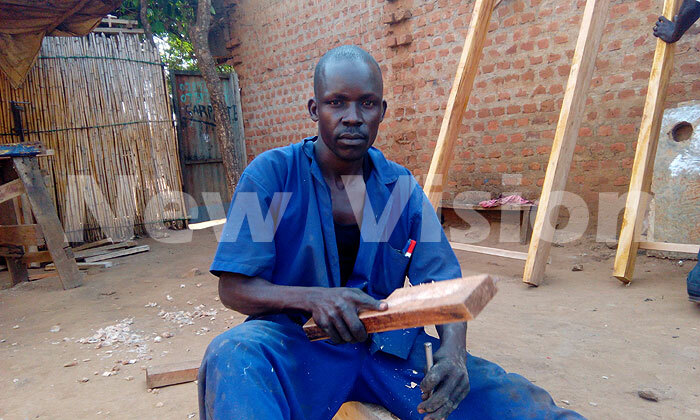
"I love my team so much. I can never miss a single Premier League game involving my team. When they qualify for European games, I also watch those games," he says.
He pays sh1000 to watch his favorite team every match weekend. Every Premier League team plays 38 league games in a season, which runs from August to May. To watch 38 Liverpool games in a premier league season, he spends at least sh38,000.
Besides watching his beloved Liverpool, Odaga says he watches at least two other games on a match weekend in the world's most popular football league — because, as he puts it, "I breathe football!".
So if Odaga spends sh3000 every match weekend on watching football, after 38 rounds of games, he will have spent at least sh114,000.
Odaga's favorite player's wages
Odaga's favorite player is Liverpool star Philippe Coutinho. The flamboyant and skillful Brazilian international is one of the league's brightest players.
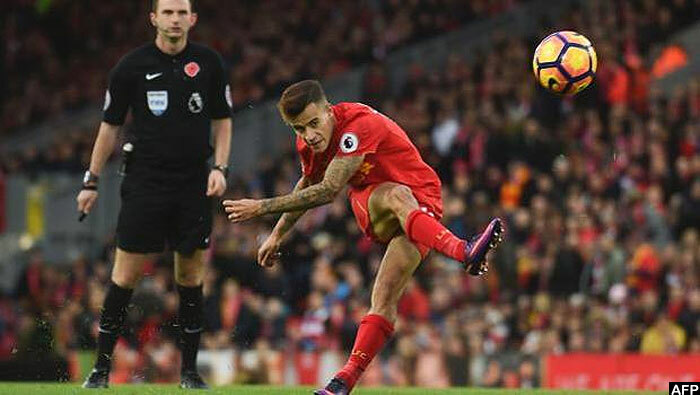
Coutinho's contract with Liverpool, which stretches to [the year] 2020, sees him earn £75,000 per week (about sh334m weekly).
Although Odaga is reluctant to reveal how much he earns, one thing is certain: the chances that he will ever make the kind of money Countinho makes in a year are highly improbable.
So does Odaga think he contributes in any way to Coutinho's salary? He does not reckon so. He even struggles to figure out how that the little money he spends watching his favorite Premier League team can somehow end up in his favorite player's pocket.
"I hear those guys (Premier League footballers) earn a lot of money. As far as I am concerned, the money I pay for watching these games ends up with the owner of the venue I watch matches from," he says.
From Odaga's pocket to Coutinho's pocket
He is wrong though. He does contribute to Coutinho's salary.
If you are like Odaga, and you do not know how that money you pay at the kibanda eventually ends up paying that Premier League star's wages, here is the journey your money makes . . .
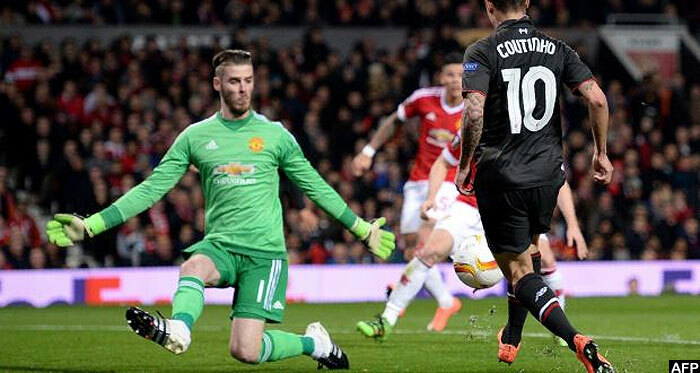
STEP ONE: You pay that sh1000 to the kibanda guy to watch Liverpool play, and cheer Countinho [well, if you are Odaga], every match weekend.
STEP TWO: The kibanda owner pays his subscription at the end of the month to MultiChoice Uganda, whose SuperSport product has the sole rights to broadcast Premier League matches in Uganda and sub-Saharan Africa.
STEP THREE: Upon MultiChoice collecting these subscriptions, they bid and pay for the rights to broadcast Premier League games.
According to the UK's Daily Mail newspaper, SuperSport paid £205m (about sh913b) for 2013-16 pan-region rights to broadcast the Premier League in Africa. This figure has risen more than 40% to £296m (about sh1.3 trillion) for 2016-19.
STEP FOUR: After getting the money from SuperSport and other rights holders from other parts of the world, the Premier League then shares the money amongst the 20 football clubs that are playing in English football's top-flight league.
Besides the competition being known as the English Premier League, the term also refers to the corporation that holds together these 20 clubs as a shareholder.
A forecast by the Daily Mail in January put the sale of overseas TV rights for 2016-19 at £3.2b. This is astonishing, considering the fact that the English Premier League earned £8m a year from selling live rights to every other country in the world combined at its inception in 1992.
STEP FIVE: After receiving the money from the English Premier League, the football clubs then get to negotiate huge contracts for the star players like Coutinho, and even bid to buy better players.
British media reports indicate that Liverpool are contemplating offering the Brazillian a better contract, that will see him earn as much as £150,000-a-week (about sh668m weekly) to keep the 24-year-old at the club in the face of growing interests from other clubs like Barcelona and Manchester City.
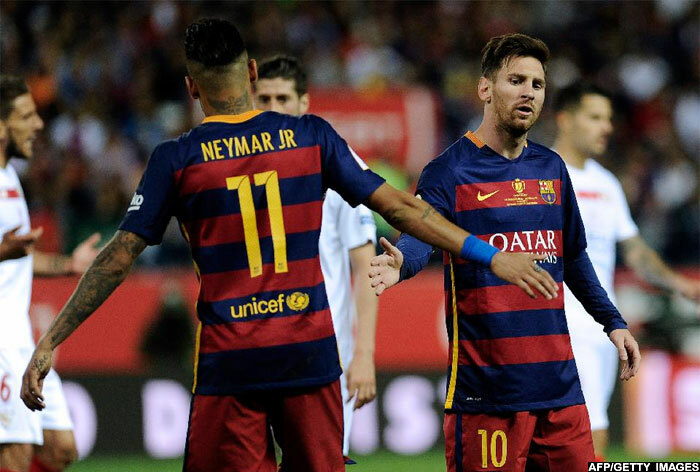
Television is and will always be king
Television is not the only source of income for these clubs. To supplement the money from these deals, these clubs negotiate independent sponsorship deals with companies like airlines, car manufactures, alcohol brewers among others, so they can have the names of these companies on their jerseys. They also have sponsorship deals with kit manufacturers.
However, TV remains king! Without the money from Odaga and millions of other football fans around the world, the English Premier League would certainly not be the phenomenon that it is today. That is why the broadcasters of these games determine the fixtures; when Odaga's Liverpool play bitter rivals Manchester United, and the time Jürgen Klopp's team face Merseyside rivals Everton FC at the start of every season.
The broadcasters, because of the money that they bring to the Premier League, also make adjustments to fixtures during the course of the season when need arises.
The money that these clubs make from these television deals makes it possible for these Premier League teams to pay high wages for talented players such as Coutinho.
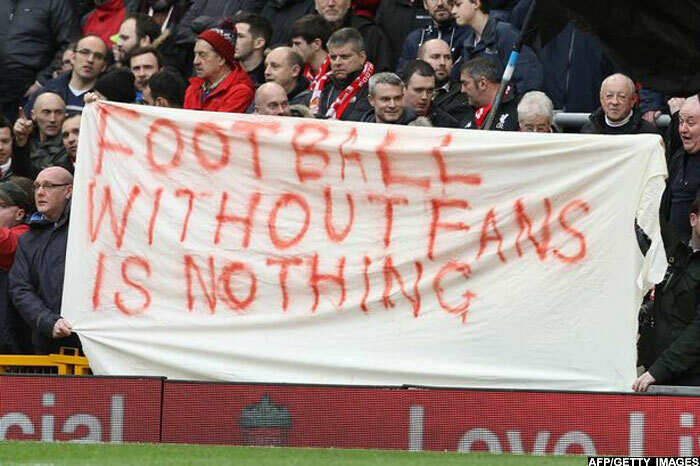
Even after the high taxes paid in the UK, these players still go home with overflowing pockets, which is why they are able to change luxury cars more often than Odaga changes his overall at his work station.
So now that Odaga knows that the monies of several humble supporters of the Premier League around the world like him contribute to Coutinho's salary, does it make any difference to him?
Well, the 32-year-old carpenter cares less about the Brazillian's earnings vis-à-vis his own meager earnings.
"Money is not the most important thing in life. Instead, happiness is. When I watch Liverpool and Coutinho, I feel happy," he says, as he disappears into the night, belting away the popular Liverpool anthem 'You'll never walk alone', which I must say, he sings better than our own national anthem:
"Walk on, walk on
With hope in your heart
And you'll never walk alone
You'll never walk alone"